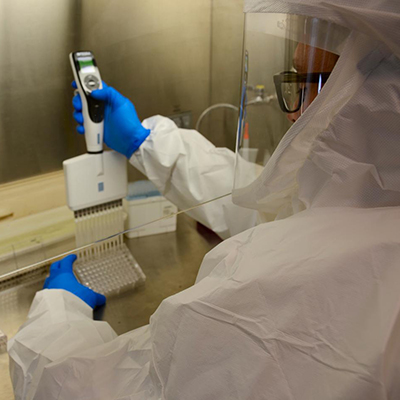August 19, 2020 -- Incidents with exposure to lab-created coronaviruses highlight the risks of working with pathogens, even in highly secure research facilities, according to an article published in ProPublica on August 17.
The article describes how, during a routine weighing of an experimental mouse infected with a lab-created type of SARS-CoV in February 2016, a scientist was bitten by the mouse through protective gear while working in a biosafety level 3 facility at the University of North Carolina at Chapel Hill (UNC).
Instead of quarantining to wait for signs of infection, the scientist was allowed to go about life as normal for the next 10 days, only wearing a surgical mask and reporting her temperature twice daily. The scientist did not become ill, but the near-miss incident highlights the potential risks of infection via a lab worker to the public.
This incident is only one of at least six other reported incidents at UNC where researchers were exposed to types of lab-created coronaviruses and required medical monitoring, according to the ProPublica article.
More recently, a UNC researcher in April was bitten by a mouse infected with a genetically altered form of the SARS-CoV-2 virus. However, in this case, the scientist was instructed to self-quarantine for 14 days, according to the story.
Virologists work with the highly pathogenic viruses to determine which coronaviruses that only infect animals may mutate and give them the ability to jump to humans causing infectious diseases, and to advance development of treatments and vaccines.
UNC researchers have been conducting "gain of function" research using genetically modified pathogens for years, with some controversy over the risks involved in conducting the research. The university stated that it is because of its early work with pathogens, that the U.S. was able to quickly find treatments for SARS-CoV-2, noting the development of Eidd-2801.
Copyright © 2020 scienceboard.net







